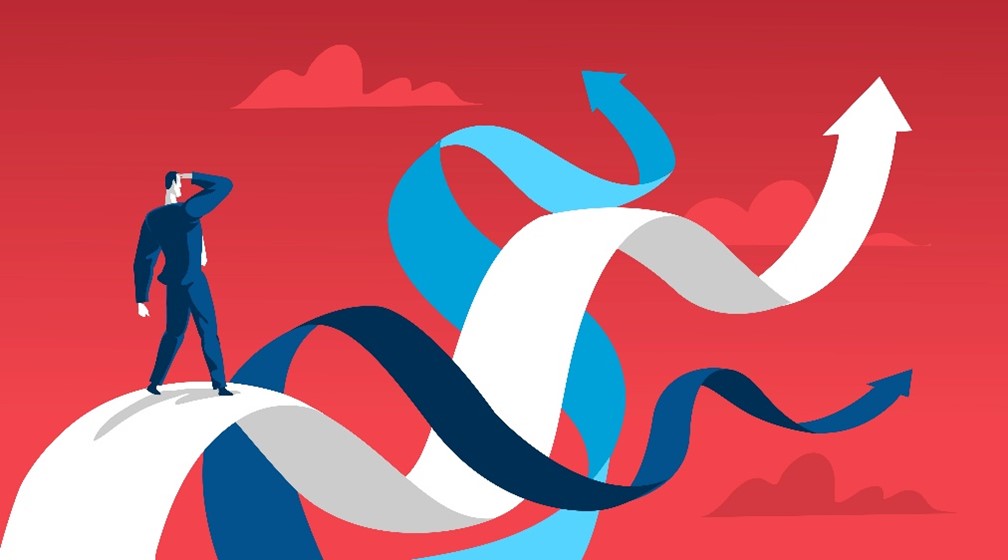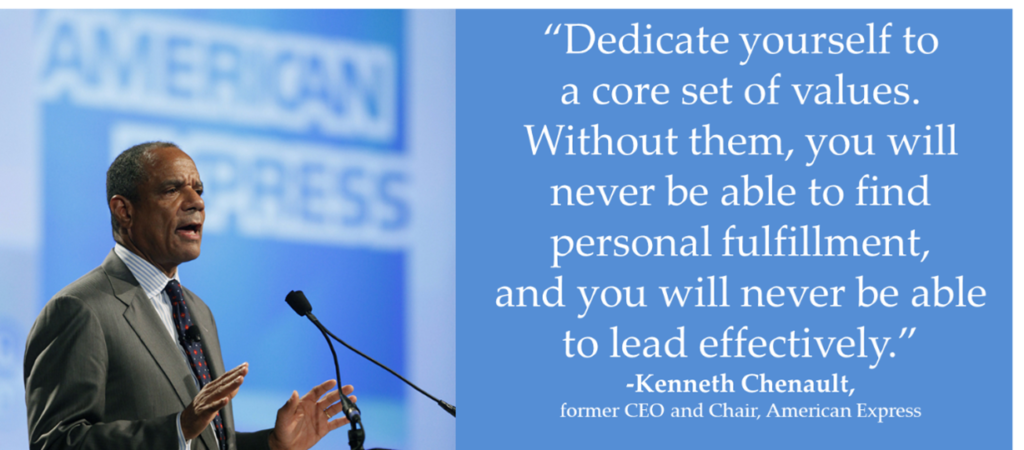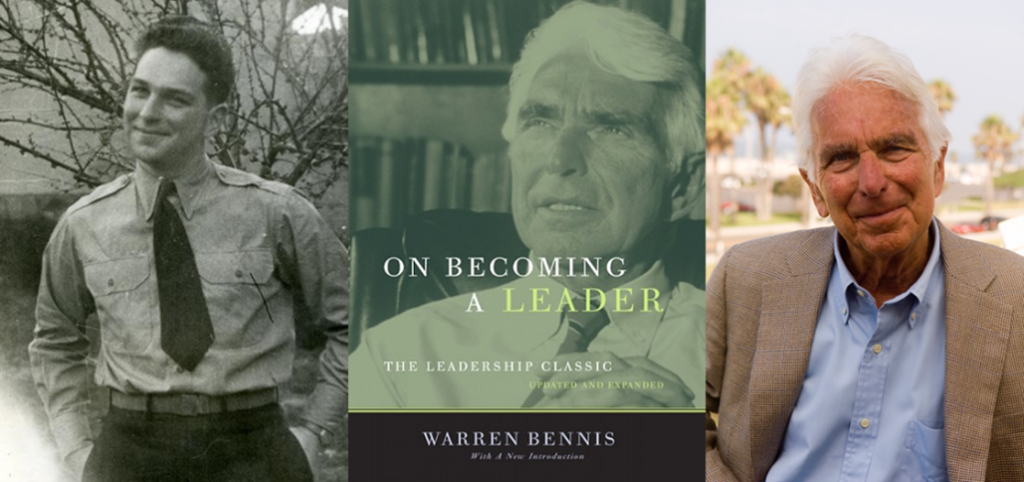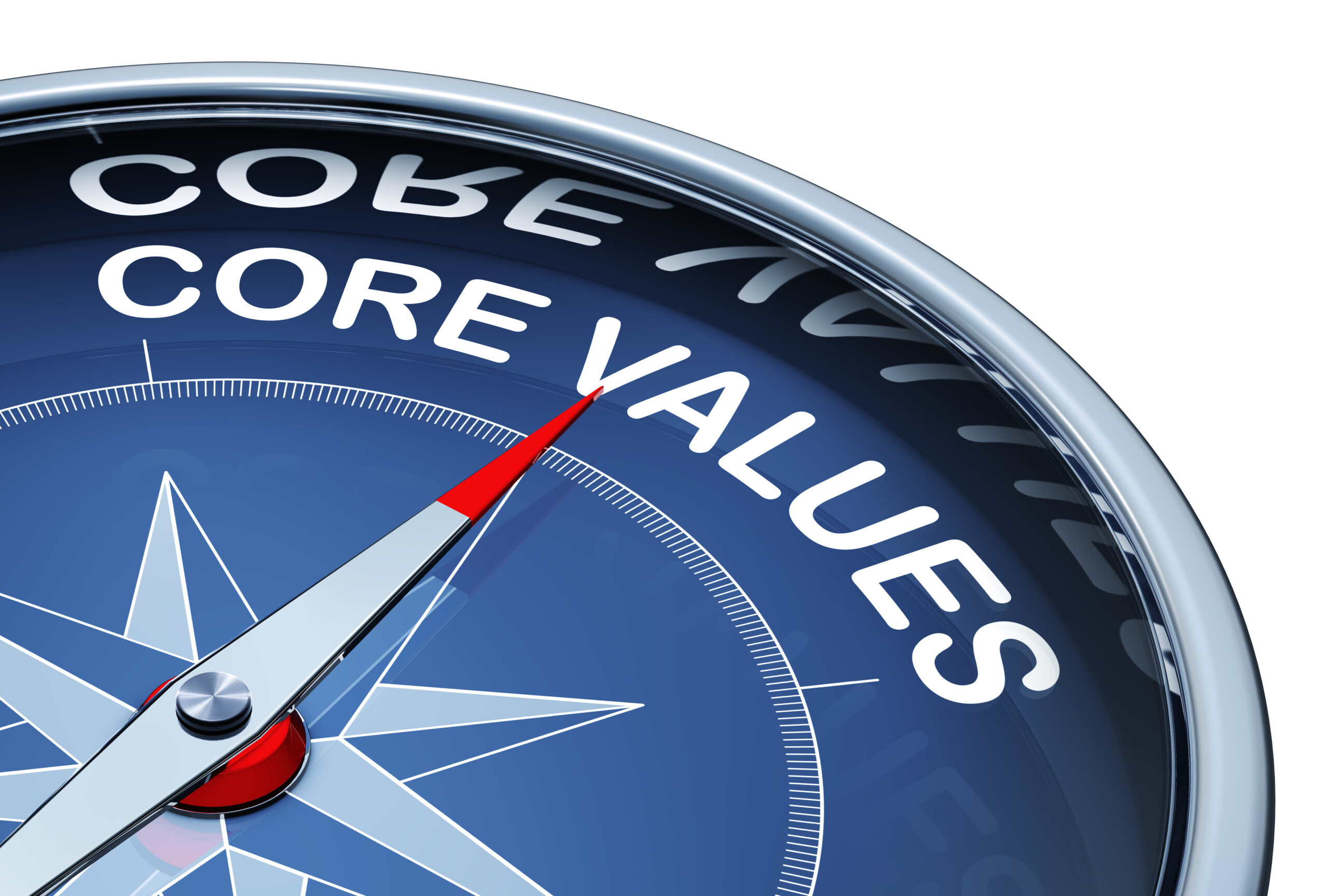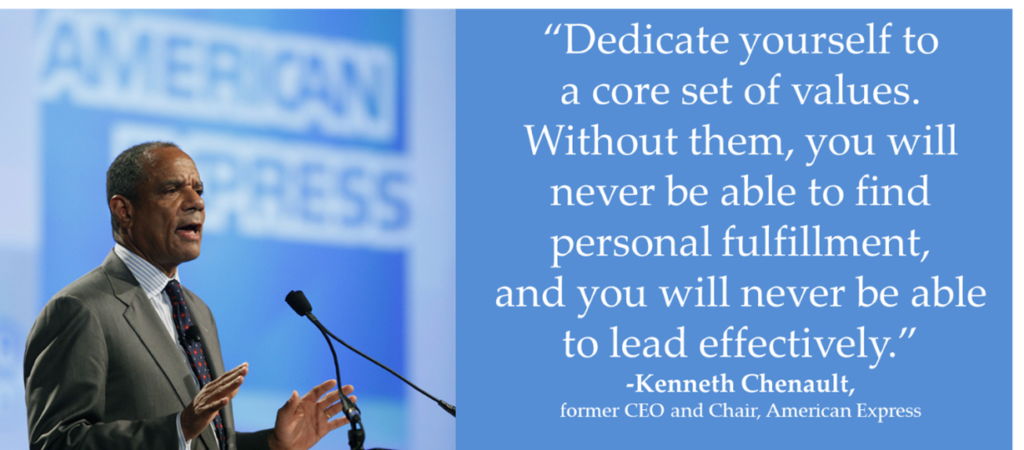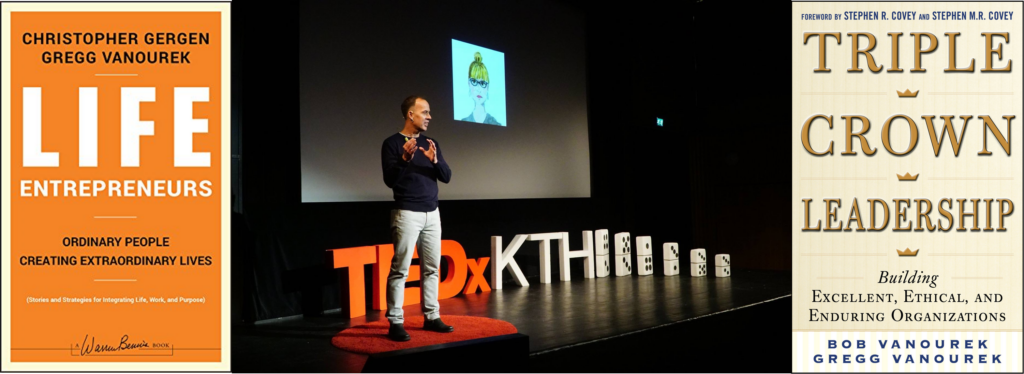Article Summary:
Knowing and living your purpose is hard for many. It helps to break it down to the three key elements of purpose. Excerpts from my conversation with best-selling author, Richard Leider.*
+++
Gregg Vanourek:
Richard, you have something you call the “napkin test.” You’ve written that calling, which you sometimes use as a synonym for purpose, is a function of your gifts and your passions and your values:
G + P + V = C
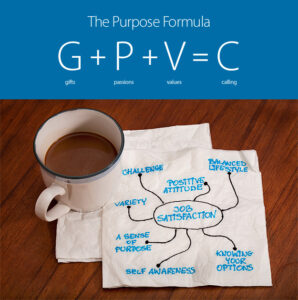
“’Finding your purpose’ is misleading, however, because it’s not something we have to go out and ‘find.’ Rather, purpose is revealed when we turn within and unlock it. We’ve already got it—even if we haven’t clarified it yet! But how do you unlock it? By looking in the most essential places—our individual gifts, passions, and values….
Combining our gifts with our passions and values reveals to us purpose.”
-Richard Leider and David Shapiro, The Power of Purpose, 4th edition
What if someone comes to you and says, I don’t have any gifts, or, I don’t have any passions? Say a bit more about how you’d respond to that person who’s really struggling and just doesn’t see it.
Richard Leider:
I call it the “Got-a-minute school of coaching,” because people say, Got a minute? Can you tell me what I should do with the rest of my life?
I say, Take out a napkin and write down your gifts, passions, and values. And let’s talk about that after you do some work on it.
I’ve interviewed thousands of people over five decades of life. There’s not one person I’ve ever interviewed who doesn’t ultimately own their gifts. They say, Yeah, I really enjoy that, I love that, I’m good at that. So, a gift is the first thing in the formula.
Gregg:
How do you define a gift?
Richard:
A gift has four characteristics:
- First, it’s something you love to do.
- Second, your hand turns to it naturally. Others observe you doing it effortlessly and superbly.
- Third, you can’t remember learning it. When asked how you learned it, you might say, I don’t know. I don’t have a degree in that, but I just do it effortlessly and well.
- Fourth, you say, I love learning more about it and hanging out with people interested in it.
Ask someone, What’s your gift? Ask what they love to do. They come up with it automatically. They know there’s something there.
I created a tool called Calling Cards. It’s available on Amazon, and it helps people to do a deeper dive into that. Sometimes I use that when I’m working with leadership teams, because people are so starved for that.
Gregg:
What are passions, the second element?
Richard:
Passions are, What do you want to use your gifts in the service of? What do you really care about? What keeps you up at night? But it’s not about your problems. It’s more about your opportunities. What are you reading and thinking about? What do you care about?
I’m 80, and I wake up early in the morning. The first thing I do is write. What I write about is what I’m thinking about, what I care about, and what I read about. It makes me happy. So, What is it that you care about, that you would love to use your gifts in the service of?
Gregg:
And what about values, the third element?
Richard:
Values are about where you do what you do. So many people have a good job, but they don’t like where they’re doing it. It doesn’t fit them.
The number-one knockout factor in most career research is this: I don’t like where I’m working. I don’t like the people. It’s not a good fit for me. The job is good, but the place is not. That’s why so many people would rather do their own thing, something on their own.
* Video conversation between Gregg Vanourek and Richard Leider via Zoom, recorded, transcribed by Otter.ai, and then edited by Gregg.
Gregg Vanourek is a writer, teacher, and TEDx speaker on personal development and leadership. He is co-author of three books, including LIFE Entrepreneurs: Ordinary People Creating Extraordinary Lives (a manifesto for living with purpose and passion) and Triple Crown Leadership: Building Excellent, Ethical, and Enduring Organizations (a winner of the International Book Awards). Check out his Best Articles or get his monthly newsletter.
Richard Leider is an internationally best-selling author, coach, and keynote speaker who’s widely viewed as a thought leader of the global purpose movement. His work is featured regularly in many media sources, including PBS and NPR. He is the founder of Inventure—The Purpose Company, a firm created to guide people to live, work, and lead on purpose.

Gregg’s Tools for You
- Strengths Search to help you identify your core strengths and start using them more in your life and work
- Passion Probe to help you find the things that consume you with palpable emotion over time
- Personal Values Exercise to help you clarify what’s most important to you
Related Articles & Books
- “How to Discover Your Purpose”
- “The Problem with Not Being Clear About Our Purpose”
- “The Most Common Myths about Purpose”
- “Purpose Demystified”
- “Unlock the Power of Purpose in Your Work and Leadership“
- “The Spiritual Side of Purpose“
- “Purposeful Aging–Still Growing and Giving“
- Richard Leider and David Shapiro, The Power of Purpose: To Grow and to Give for Life (4th edition, Berrett-Koehler, 2025)
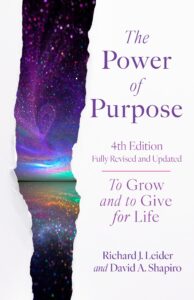
Postscript: Inspirations on Purpose
- “Purpose is already within us waiting to be discovered.” -Richard Leider, author
- “Respond to every call that excites your spirit.” -Rumi, 13th century poet
- “Your life is an opportunity to give the gifts that your soul wants to give.” -Gary Zukav, author
- “I believe that we are put on this earth to live our soul’s purpose. To me, that means using our unique gifts and talents to make a positive impact in the world and help create the world we want to see…. We are all born with an inner compass that tells us whether or not we’re on the right path to finding our true purpose. That compass is our JOY.” -Jack Canfield, author
- “Purpose is a presence within us all the time. It is a constant presence in our lives that merely needs to be unlocked via reflection and action.” -Richard Leider and David Shapiro, The Power of Purpose, 4th edition
“If we lack purpose, we lose connection with our true nature and become externally driven, generating discontent or even angst. Because purpose can be so elusive, we often duck the big question and look for ways to bury that discontent, most often through ‘busyness,’ distraction, or worse.”
-Christopher Gergen & Gregg Vanourek,
LIFE Entrepreneurs: Ordinary People Creating Extraordinary Lives












